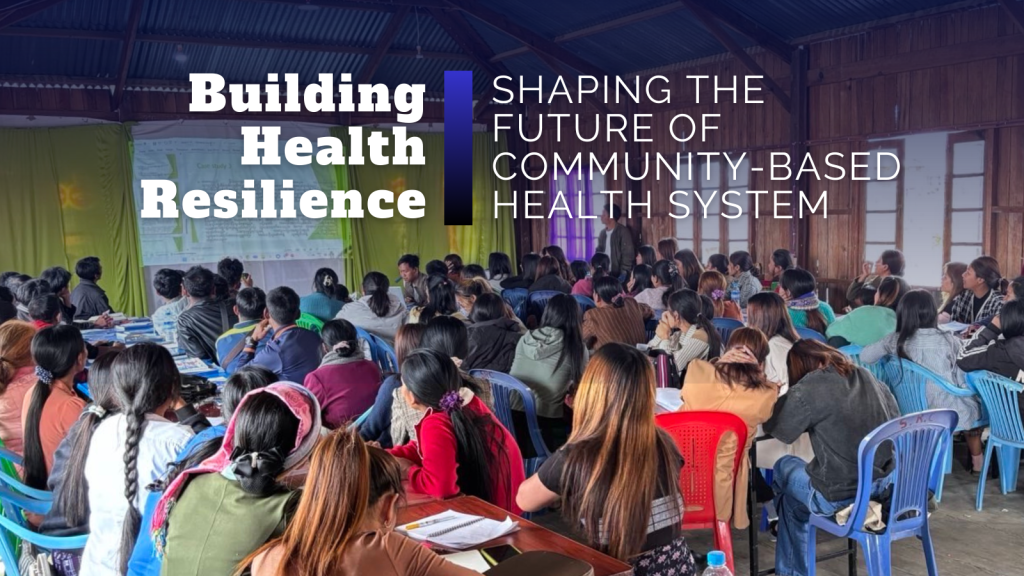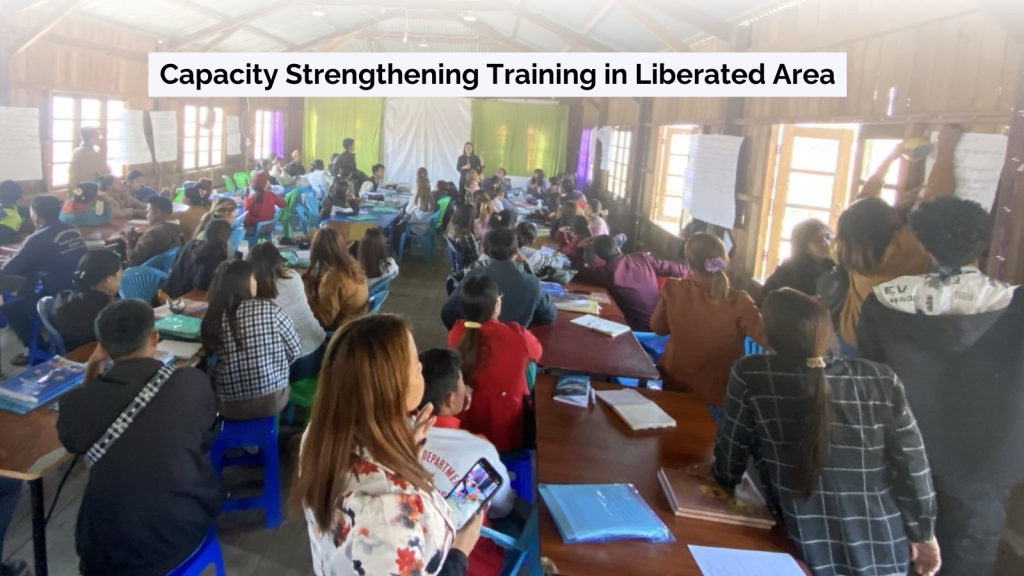Health and Protection Program: The Role of Community-Based Health Workers (CBHWs) in Conflict Zones and Among IDPs

At the heart of CHRO’s Health and Protection Program are Community-Based Health Workers (CBHWs), who serve as the backbone of public health interventions, particularly in conflict zones and among internally displaced persons (IDPs). These workers are critical in delivering healthcare services in liberated areas where formal healthcare infrastructure is lacking, and their presence not only strengthens healthcare systems but also contributes to peacebuilding and transitional governance efforts.
Their work is vital to building a resilient, inclusive healthcare system, while simultaneously fostering confidence in long-term peace and federal governance structures that many in Myanmar envision as a pathway to lasting stability.
Key Contributions of CBHWs:
1. Enhancing Local Health Governance
CBHWs are closely involved in community leadership through Village Health Committees (VHCs), empowering communities to make health-related decisions. This governance model promotes sustainable, locally-driven healthcare services in conflict-affected areas, reinforcing the importance of community agency in both health and governance.
2. Improving Outbreak Response in Conflict Zones
Operating in some of the most challenging environments, CBHWs are often the first responders to disease outbreaks in conflict zones. Their on-the-ground presence ensures the rapid detection and containment of diseases, which is especially critical for displaced populations living in overcrowded and unsanitary conditions.
3. Supporting Data-Driven Healthcare Planning
Even in the most remote and volatile regions, CBHWs systematically record vital health statistics, helping inform local and international health responses. These data are crucial for public health strategies and policies, especially in areas where health infrastructure is either non-existent or severely weakened due to conflict.
4. Delivering Healthcare to IDPs and Conflict-Affected Communities
CBHWs work directly among IDPs and communities in liberated areas, ensuring that essential health services, education, and preventive care reach the most vulnerable populations. Their presence helps address the immediate needs of populations displaced by conflict while building long-term resilience in communities affected by violence.
5. Strengthening Primary Healthcare Services in Conflict-Affected Areas
CBHWs are trained to manage primary health needs, from treating common diseases to addressing maternal and child health, as well as malnutrition. By doing so, they ease the burden on limited healthcare facilities in conflict zones, ensuring that primary health services are accessible even in fragile settings.
6. Facilitating Emergency Referral Systems in Crisis Situations
Working in areas where formal health infrastructure is lacking, CBHWs are critical in identifying severe cases and coordinating timely emergency referrals to the nearest available healthcare facilities. Their work ensures that individuals in conflict zones, where healthcare access is often restricted, receive the urgent care they need.
7. Building Confidence in Peacebuilding and Governance Initiatives
By providing consistent healthcare services in conflict zones and liberated areas, CBHWs play a key role in fostering trust between local populations and transitional governance structures. Their work is seen as a symbol of stability, contributing to confidence in peacebuilding efforts and creating a foundation for the envisioned federal structure that includes health equity as a cornerstone of governance.

CBHWs: A Pillar of Health and Peace in Conflict Zones in Western Myanmar
In areas where the Myanmar military and ethnic armed groups continue to clash, CBHWs stand as a testament to the resilience of local communities. Their work not only delivers lifesaving health interventions but also helps to rebuild trust, empower communities, and contribute to the long-term vision of peace and federalism in Myanmar.
By supporting the health and dignity of IDPs and conflict-affected communities, CBHWs are not only improving health outcomes but also playing a significant role in stabilizing liberated areas and supporting the transition to a more inclusive, equitable society. CHRO remains steadfast in its support for CBHWs, recognizing their crucial role in building a peaceful and healthy future for all communities in Myanmar.
